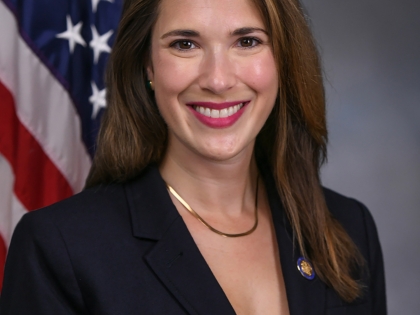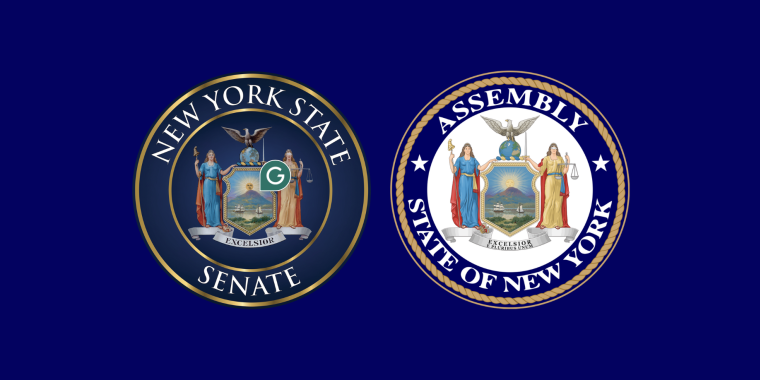
Four Hinchey Bills Pass Senate Supporting Comprehensive Solar Energy Tracking, Food Procurement, County Fairs, and Cannabis Growers
June 1, 2023

ALBANY, NY – Four bills sponsored by Senator Michelle Hinchey passed the State Senate on Wednesday, including legislation to track renewable energy projects to ensure New York meets its climate goals while protecting New York farmland and food security, promote values-based food procurement, support youth competitions in small county fairs, and extend the sunset date of the state’s cannabis cultivator and processor licenses to support farmers as New York continues to scale its cannabis market.
Senator Michelle Hinchey said, “Across New York State, agriculture is a core industry that has shaped our local landscape, economy, and way of life, and I’m proud that four of my bills supporting different needs within this industry have passed the Senate this week. From creating the first state-initiated values-based purchasing incentives to support local farms, to helping scale our renewable energy goals while protecting farmland and considering regional impacts, to supporting the next generation of leaders and new farm businesses, this slate of bills will strengthen our Upstate and Hudson Valley communities.”
Developing a Statewide Solar Project Tracking System (S6404)
New York does not have a system for tracking proposed or approved solar energy projects; and therefore, no holistic understanding of where we are in relation to meeting our Climate Leadership and Community Protection Act (CLCPA) goals or what communities may be disproportionately impacted by targeted overdevelopment and farmland loss. Hinchey’s bill (S6404) directs the Office of Renewable Energy Siting (ORES) and the Public Service Commission (PSC) to create a publicly available statewide map of all approved and proposed renewable energy projects at every step of the application process, including data such as notices of intent and types of land sited for development. With this map and accompanying data, communities and state leaders will have a more complete understanding of New York’s solar deployment in order to monitor and track regional impacts, help New York meet the goals of its Climate Act, and protect Upstate communities, farmland, and food security from inequitable development practices.
Introducing a Values-Based Food Procurement Model (S6955)
Municipalities across New York spend millions of dollars purchasing food for nursing homes, homeless shelters, hospitals, and other local facilities. Hinchey’s bill (S6955) would give these institutions the flexibility to source food from local businesses that meet their values based on Good Food Purchasing standards, which can include environmental sustainability, health and nutrition, animal welfare, economic benefits to New York State economies, and workers’ rights. When signed, Hinchey’s bill will make New York the first state to institute a values-based procurement model at the municipal level that directs commerce toward local farms, BIPOC businesses, and pro-environment, worker, and animal welfare applicants.
Extending NY Cannabis Cultivator and Processor Licenses (S7354)
Last year, Hinchey sponsored legislation signed into law by the Governor to create temporary cannabis cultivator and processor licenses aligning the rollout of New York’s cannabis program with the 2022 growing season so that New York farmers could grow product in time to meet the demand when dispensaries opened their doors. Due to delays in the permanent cultivator and retail licensure rollout, temporary cultivator and processor licenses are still needed to ensure that New York farmers and processors remain the backbone of the burgeoning cannabis market. Hinchey’s bill (S7354) extends the temporary licenses for cultivators and processors until June 30th, 2024, and her bill was officially signed into law today on June 1, 2023. The legislation also extends the program’s social equity goals by requiring conditional license holders to participate in a social equity mentorship program under which they will provide training in cannabis cultivation and processing for social and economic equity partners, preparing them for roles in the industry.
Making Youth Competitions in Small County Fairs Eligible for State Reimbursement (S5526)
County fairs are an important tradition in many rural and Upstate communities, and provide meaningful leadership opportunities for local youth through the promotion of agriculture and arts competitions. County fairs often award funding to youth that participate in these competitions; however, must spend at least $5,000 in premiums to be eligible for state reimbursement, which is a criteria that is difficult for many small fairs across New York State to meet. Hinchey’s bill (S5526) would lower the required amount to $2,500, ensuring that smaller county fairs can receive this reimbursement and allowing them to continue engaging youth through these competitions.
###
Share this Article or Press Release
Newsroom
Go to Newsroom


